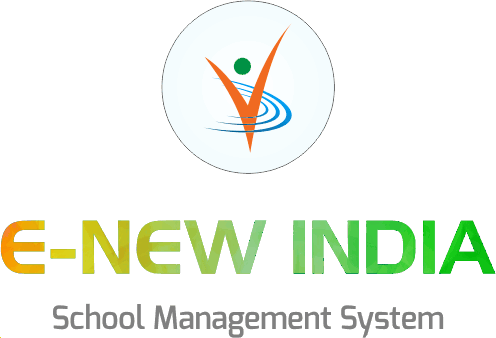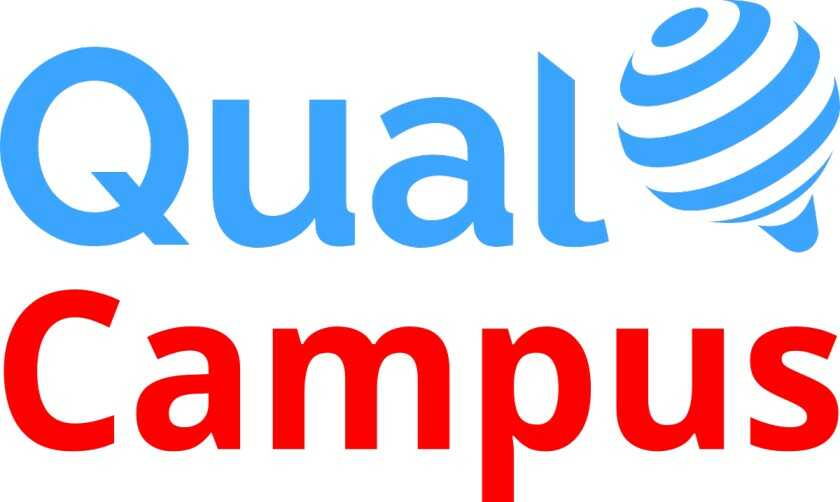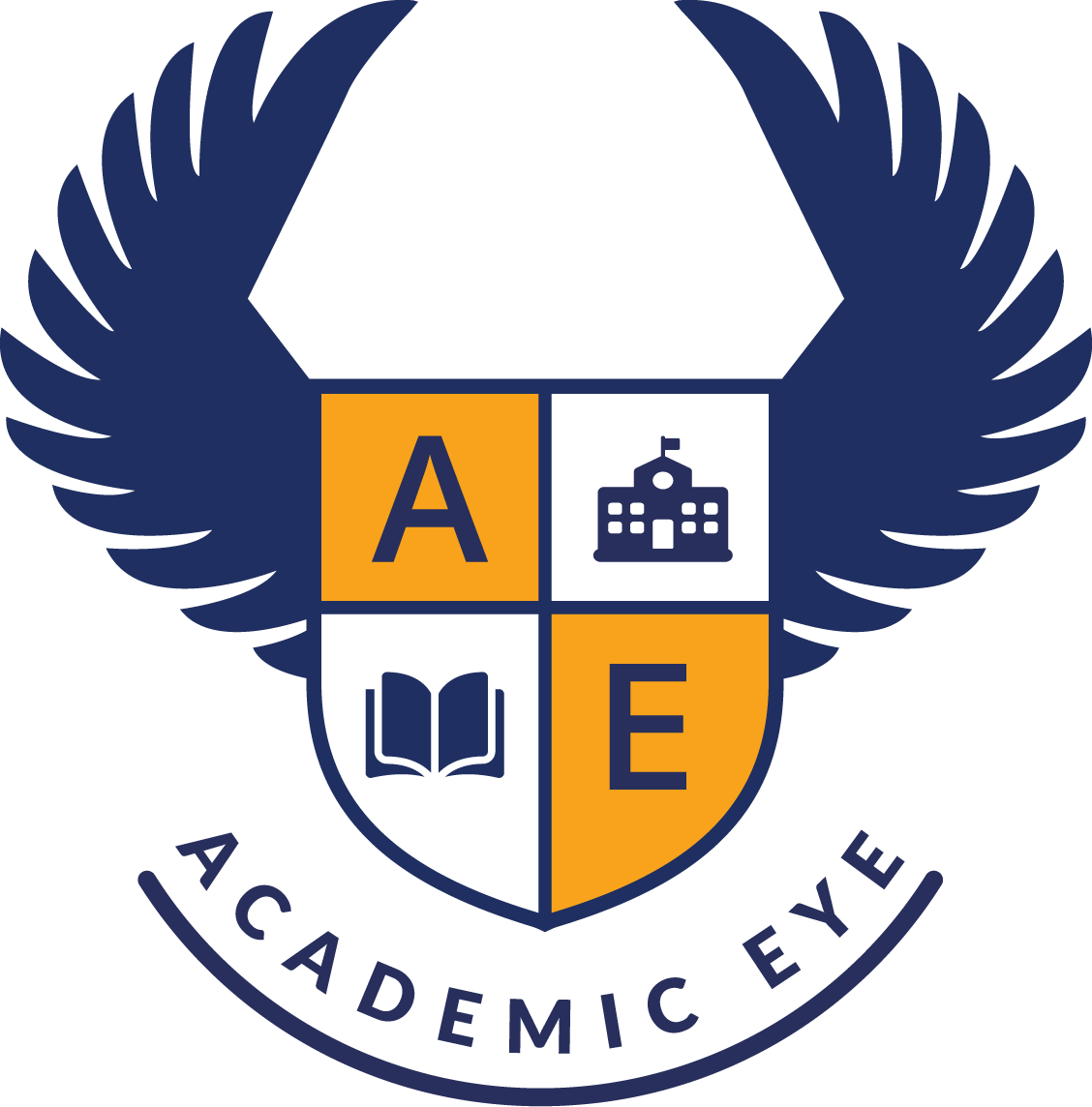Description

ENewIndia School Management

QualCampus
Comprehensive Overview: ENewIndia School Management vs QualCampus
Here's a comprehensive overview of ENewIndia School Management, QualCampus, and ThinkWave:
ENewIndia School Management
Primary Functions and Target Markets:
- Primary Functions: ENewIndia School Management is designed to offer a comprehensive solution for managing school operations. This includes features like student enrollment, attendance tracking, grading, timetable management, and communication tools for teachers, students, and parents.
- Target Markets: The product primarily targets schools in India, focusing on both public and private educational institutions looking for an integrated management system to streamline administrative tasks.
Market Share and User Base:
- ENewIndia School Management seems to have a more regional focus, primarily in the Indian market. The penetration outside of India is limited, which suggests a smaller global market share compared to other international competitors.
Key Differentiating Factors:
- Localization: Strong focus on local educational needs and compliance with regional educational norms and regulations.
- Cost Efficiency: Potentially more cost-effective for Indian schools compared to international solutions.
QualCampus
Primary Functions and Target Markets:
- Primary Functions: QualCampus is an integrated campus management system that provides a wide array of functionalities, including academic management, financial management, student information systems, and e-learning modules.
- Target Markets: It targets higher educational institutions such as colleges and universities worldwide, with a focus on offering a holistic campus management solution.
Market Share and User Base:
- QualCampus is used by various educational institutions around the globe, especially in regions where there is a need for comprehensive campus management solutions. However, it is not as widely recognized as some top market leaders in education technology, suggesting a modest market share.
Key Differentiating Factors:
- Comprehensive Features: Offers a wide range of features that cover both academic and administrative needs comprehensively.
- Scalability: Suitable for larger institutions with complex requirements owing to its broad functionality.
ThinkWave
Primary Functions and Target Markets:
- Primary Functions: ThinkWave focuses on providing a user-friendly platform for school management, including gradebooks, report cards, attendance, and homework management. It is heavily oriented towards enhancing teacher productivity with digital tools.
- Target Markets: Primarily targets small to medium-sized schools and educators seeking a straightforward, easy-to-use system for classroom management.
Market Share and User Base:
- ThinkWave has a significant number of users in North America and other English-speaking regions. It caters specifically to small and medium-sized educational setups, which influences its market share to be niche-focused compared to larger, more comprehensive systems.
Key Differentiating Factors:
- Ease of Use: Emphasis on simplicity and ease of use, suitable for schools that do not require extensive customization or advanced features.
- Cloud-Based: As a cloud-based solution, it offers quick deployment and accessibility, making it attractive for schools looking to minimize IT infrastructure overhead.
Comparison and Conclusion
Comparing these solutions:
- Functionality and Target Market: ENewIndia focuses on K-12 education in India, QualCampus offers a broader solution for global higher education, and ThinkWave targets small to medium-sized educational institutions with easy-to-use tools.
- Market Share: QualCampus, with its international focus and wider feature set, might have a competitive edge over more regionally focused solutions like ENewIndia, but ThinkWave could have a strong user base in its niche.
- Differentiating Factors: Each product has unique selling propositions like localization and pricing (ENewIndia), comprehensive coverage (QualCampus), and user-friendliness (ThinkWave). The choice between them largely depends on the specific needs of the educational institution, whether it be comprehensive features, ease of use, or regional suitability.
Contact Info

Year founded :
Not Available
Not Available
Not Available
Not Available
Not Available

Year founded :
Not Available
Not Available
Not Available
Not Available
Not Available
Feature Similarity Breakdown: ENewIndia School Management, QualCampus
When comparing ENewIndia School Management, QualCampus, and ThinkWave, it's essential to evaluate their features, user interfaces, and any unique offerings. Here's a breakdown based on these criteria:
a) Core Features in Common:
- Student Information Management: All three platforms offer comprehensive systems to manage student records, including enrollment, attendance, grades, and personal information.
- Teacher and Staff Management: Each platform provides tools for managing teachers and staff, including schedules, payroll, and human resources functionalities.
- Parent and Student Portals: They all offer interfaces for parents and students to access important information such as grades, attendance records, and communication from the school.
- Communication Tools: These platforms include communication features, such as mass notifications and messaging systems, to facilitate interactions between students, parents, teachers, and administrators.
- Reporting and Analytics: They provide comprehensive reporting tools to generate insights on various aspects of school management, including academic performance and administrative efficiency.
- Attendance Tracking: Automated attendance tracking systems are available in all three, helping schools maintain accurate records.
b) User Interface Comparison:
- ENewIndia School Management: Typically, interfaces for platforms serving the Indian market are designed with simplicity and functionality in mind, catering to a diverse range of users with varying tech-savvy levels. Expect colorful, user-friendly dashboards with localized content.
- QualCampus: Known to offer customizable and intuitive interfaces. Their UI focuses on efficiency and flexibility, catering to both K-12 and higher education institutions.
- ThinkWave: ThinkWave tends to have a more academic-focused interface, often appreciated for its simplicity and ease of navigation, suitable for teachers who need quick access to teaching-related tools and resources.
c) Unique Features:
- ENewIndia School Management: May offer localized features such as language support specific to regional languages, and adherence to local compliance and educational standards.
- QualCampus: Often provides extensive customization options, allowing institutions to tailor the software to their specific administrative processes and educational offerings. They might also integrate more extensively with higher education systems.
- ThinkWave: Notably, ThinkWave provides a cloud-based gradebook that is particularly favored by smaller schools and is recognized for its affordability and ease of use, even in environments with limited technical infrastructure.
In summary, while ENewIndia School Management, QualCampus, and ThinkWave share many core features vital for school management, they differ in their user interface design philosophies and certain niche functionalities, tailored to their target markets.
Features

Fee Management
Student Information
Attendance Management
Academic Planning
Communication Tools

Communication Tools
Course Management
Student Management
Best Fit Use Cases: ENewIndia School Management, QualCampus
When evaluating school management software like ENewIndia School Management, QualCampus, and ThinkWave, it's essential to consider their unique features, the type of institutions they best serve, and their adaptability to different educational environments. Here's a detailed look at each product:
ENewIndia School Management
a) Types of Businesses or Projects:
- Local or Regional Schools: ENewIndia School Management is ideal for schools operating within India or similar educational environments, as it is likely designed to cater to the specific needs of these institutions.
- Institutions with Need for Comprehensive Administrative Tools: Schools looking for a robust system that integrates admission, attendance, exams, and results management effectively.
- Cultural and Linguistic Relevance: Schools that benefit from software tailored to Indian educational norms and languages.
d) Industry Verticals or Company Sizes:
- Small to Medium-sized Educational Institutions: The solution is likely tailored to address the needs of local public and private schools, making it less suitable for very large institutions with complex requirements or international schools.
QualCampus
b) Scenarios as the Preferred Option:
- Colleges and Universities: QualCampus is often designed to support higher education management, making it ideal for undergraduate and postgraduate programs.
- Institutions Seeking Modular Solutions: Schools and colleges that require customizable modules for various administrative, academic, and financial operations.
d) Industry Verticals or Company Sizes:
- Medium to Large-sized Institutions: With its capacity to handle complex operations, QualCampus suits larger educational setups that may demand a comprehensive management solution.
- Educational Groups or Chains: Organizations managing multiple institutions benefit from its scalability and integrated management capabilities.
ThinkWave
c) When to Consider ThinkWave:
- Small to Mid-sized Schools and Home Schools: ThinkWave caters well to schools with straightforward administrative needs and even individual educators managing homeschool environments.
- Budget-sensitive Schools: With affordability and simplicity in deployment, ThinkWave is well-suited for schools prioritizing cost-effectiveness.
d) Industry Verticals or Company Sizes:
- Small to Medium-sized Educational Institutions: Typically more suitable for smaller institutions that require a straightforward, user-friendly interface.
- Charter or Private Schools: ThinkWave's flexibility allows these schools to tailor the system to their unique programs without unnecessary complexity.
Comparative Summary
Each of these school management systems has distinct strengths based on their design, scalability, and implementation focus:
- ENewIndia School Management is tailored to the Indian education system, providing localized solutions for regional schools.
- QualCampus excels in environments requiring modular, scalable systems suitable for higher education and larger educational networks.
- ThinkWave is straightforward and budget-friendly, appealing to small schools and homeschool environments where ease of use is critical.
Institutions must align their choice with their specific administrative needs, size, geographic location, and budget to leverage the most appropriate software.
Pricing

Pricing Not Available

Pricing Not Available
Metrics History
Metrics History
Comparing undefined across companies
Conclusion & Final Verdict: ENewIndia School Management vs QualCampus
When selecting an ideal school management system, it is important to consider each platform's strengths and limitations to make an informed decision. ENewIndia School Management, QualCampus, and ThinkWave each have unique features and appeals.
a) Best Overall Value
The best overall value for a school management system will depend on the specific needs and budget constraints of the institution in question. However, generally:
- QualCampus appears to offer a comprehensive suite of features that cater to a variety of educational institutions, offering a balance of functionality and price, which could be seen as providing the best overall value for schools that need a robust and versatile system.
b) Pros and Cons
ENewIndia School Management:
-
Pros:
- Designed specifically for Indian schools, meaning it may better address local regulations and cultural nuances.
- Offers features tailored to Indian education systems and can be cost-effective for schools in India.
-
Cons:
- May lack the global perspective or adaptability that international schools might require.
- Potential limitations in scalability and less focus on global educational standards.
QualCampus:
-
Pros:
- Comprehensive features suitable for different types of educational institutions, including universities.
- Offers modules for a wide range of operations from academic to administrative tasks.
-
Cons:
- Might be more complex to set up and require more extensive training for staff.
- Potentially higher cost compared to other simpler solutions.
ThinkWave:
-
Pros:
- User-friendly and intuitive interface that is easy for both teachers and students to navigate.
- Suitable for smaller institutions or schools looking for straightforward solutions without extensive features.
-
Cons:
- Limited in features compared to more comprehensive solutions; might not serve larger institutions well.
- May not be as customizable for schools with specific needs.
c) Specific Recommendations
-
For schools in India looking for a cost-effective solution tailored to local requirements, ENewIndia School Management could be a suitable option given its focus on the Indian education sector.
-
If you need a versatile and scalable system, QualCampus is recommended for institutions that require a broad range of features and are willing to invest in a more comprehensive setup. It's particularly strong for larger institutions that need an all-in-one solution.
-
For smaller institutions or those needing a simple system, ThinkWave could be the best fit. Its ease of use and straightforward approach make it a good choice for schools that do not require extensive customization or features.
Ultimately, the choice between these platforms should consider the institution's specific needs, budgetary constraints, and the level of technical support required.
Add to compare
Add similar companies



